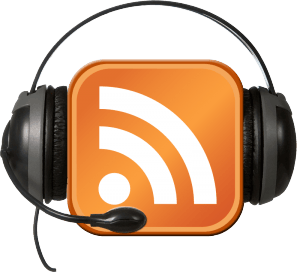 “The multiplication of learning opportunities” – this is one of the key strategies to succeed in the market today. We all know that a more educated employee is a huge resource for any company, regardless of industry, size, average age (of workforce) and so on.
“The multiplication of learning opportunities” – this is one of the key strategies to succeed in the market today. We all know that a more educated employee is a huge resource for any company, regardless of industry, size, average age (of workforce) and so on.
There’s no need to stress the importance of informal learning or education in a professional scenario since its a given. That being said, we do want to add another strategy to address informal learning, the “multiplication of learning opportunities” to help people learn and evolve every single day.
This strategy can be based on something very simple: people these days are comfortable speaking and listening for extended periods of time, e.g. by phone, so it makes sense to leverage this habit by making/ encouraging them listen to something educational! Podcasting and audio blogs are not new on the market, but both of them have in some ways failed in the past (not per se, but failed in terms of mass adoption).
valentina.piccioli@docebo.com
Unlike the past, there is now a single device (the smartphone) that can carry all audio resources, regardless of origin, and at the same time a growing trend in sharing recorded (voice) “thoughts” combined with renewed interest in the concept of radio through the digital medium.
It’s time to create a new form of audio-based learning especially designed for m-learning (aka learning on the go)! In recent weeks, I ran a test in creating a learning path 100% based on audio content. It was very easy in the beginning, because I had a lot of audio resources of extremely good quality, so this is another good point: we can reuse all the audio recordings we have from previous WBT; elearning courses, games, etc.
A lot of audio resources, I realized, were good to be re-used as they were. Whilst others just needed to be “re-organized” within a new learning scenario.For example, if you list 3 or 4 audio files with different speakers, you can easily imagine how to present that content to your final users. Imagine for example a couple of titles such as: “Judy talks about how to prevent hazards”, and then “Mark presents how to report about a critical incident”. In this case the users will be open to listening to more voices, and they will perceive this as a plus!
Getting back to our topic of learning environments for audio resources, I have to say that I found a lot of social learning platforms for audio resources with fantastic advanced features for creating, sharing, modifying and creating podcasts, but I found few features aimed at “presenting” to the final audience all those resources in a stimulating environment. We don’t find stimulating environments in the market right now because other features have been prioritized for development e.g. “easy to create and “easy to share”.
Have you never recorded something on platform like Spreaker or Yappie? It’s as easy as writing a message with Whatsapp! What’s also interesting to note is that nowadays people send more audio messages than text messages because it’s easy, personal, and fun! And as trainers we are far more used to talking more than to writing!
Obviously there is a lot to explore – social networks show us the way by being focused on the concept of allowing you to do your own radio or podcasting (so both voice and music) and the main tag for these files are date or author, not topic. And the most relevant search term remains the date, because users want to find the last podcast or transmission. Moreover, the personal aspects of the author are emphasized because the main focus is “expressing oneself”
As its stands right now, social learning platforms are the best tools for getting started on creating a learning podcast! Instructional Designers ought to explore what is available right now and expect that results can be achieved, however there is room for improvement from the development side in order to create a new channel for elearning focused on learning – not so much on sharing.
